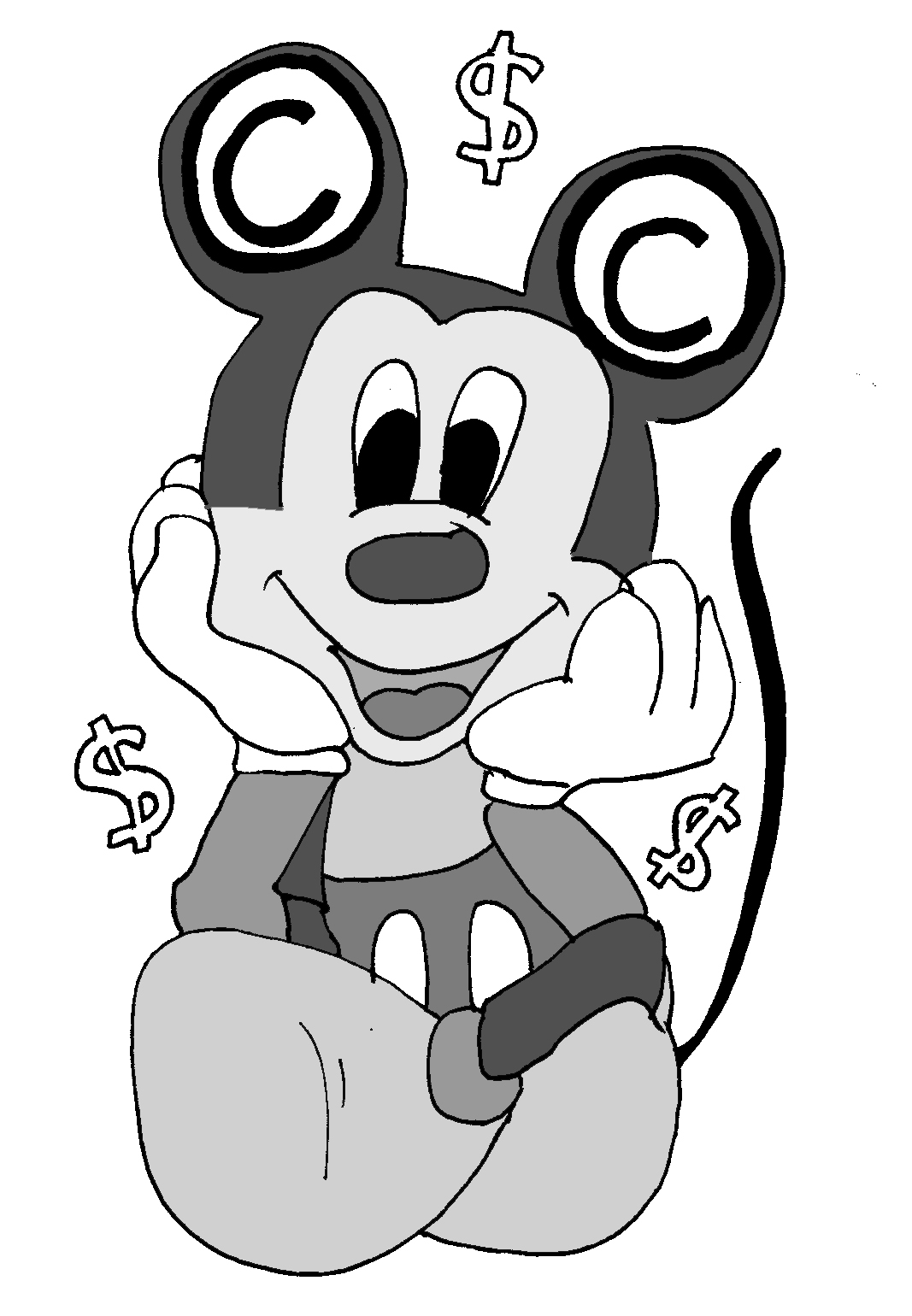Can I copy your work?
February 14, 2020
 This
piece represents the opinion of the author
.
This
piece represents the opinion of the author
.
In 1998, members of Congress from all political persuasions and sections of the country came together to protect one of America’s most endangered animals. Realizing that time was running out, Sonny Bono, Selena, George Gershwin and a host of other celebrities (or rather their estates) rallied around the cause. However, the focus of their concern was not the Sage Grouse, California Condor or any other flesh-and-blood, actually-in-grave-danger creatures. Rather it was Mickey Mouse, a rodent who was irreversibly seared into pop culture with 1928’s “Steamboat Willie.” Originally, Mickey was slated to go into the public domain in 1984. However, Disney lobbyists organized an overhaul of American copyright law that pushed Mickey’s expiration date to 2003—that is, only a few years after 1998.
While the extension of copyright over the past 50 years has been an obvious cash grab on the part of Disney and other entities that make billions off of intellectual property, copyright has long been a cornerstone of the American system. One of the U.S. Constitution’s most basic guarantees is to “promote the Progress of Science and useful Arts, by securing for limited Times to Authors and Inventors the exclusive Right to their respective Writings and Discoveries.”
Hitherto, few countries had given creators such broad privileges. Before the first printing presses, copying another person’s writings or art was such a laborious process that it made no sense to define “intellectual” property as separate from actual property. Before copying was easy, there was no way to conceive of a “book” as something both ownable and separate from a physical object. Copyright and the development of intellectual work as a legitimate form of labor, therefore, developed in tandem.
Copyright enabled intellectual labor to be turned into intellectual property. Intellectual work could finally generate profit, kicking off the expansion of media as an industry. Copyright was invented for the benefit of “Authors and Inventors,” but since most authors did not possess a printing press, intellectual property began flowing towards those who could afford the expensive equipment that copying entailed. Intellectual labor, just like its physical counterpart, became commodified. Creators became workers, their creations only as valuable as the market dictated.
The history of the 20th century was one of copyright’s slow but inexorable world conquest. Countries began enforcing each other’s intellectual property, enabling record labels, publishers and movie studios to rigidly define who did—and more importantly did not—benefit from the production of culture. Owners of copyright benefited at the expense of actual creators and, just as importantly, at the expense of free and open knowledge. Here’s where we get our Harvey Weinsteins, William Randolph Hearsts and Martin Shkrelis.
But then the Internet blew it all open. In the 1990s, the World Wide Web was the Wild West. Individuals could create, publish and share with little restrictions or oversight. The rise of free and open-source software put the means of cultural production back into the hands of individual creators, many of whom did not want or care to “reap” the benefits of their intellectual property.
Even though the Internet gave no real assurance that copyright would be respected, creators continued creating. The early Internet had vitality because it was free—and I mean “free” as in “free speech,” not “free beer.” The boom in cultural production that accompanied the computer revolution seemed to repudiate the traditional logic of copyright.
Ironically, the accelerating ease of copying revealed both copyright’s utility and its contradictions. It is understandable that the framers of the Constitution wanted to create a system in which intellectuals could survive off their own labor. They wanted to protect honest work in the face of technological progress.
However, the system they created developed into a mockery of honest work because they failed to account for undemocratic access to the means of copying, i.e. the printing press. Under modern copyright laws, wealthy individuals—like those behind the Disney corporation—can make vast amounts of money without so much as raising a finger by purchasing intellectual property and then charging the public to access it at inflated prices.
The Internet, however, has made copying easier and more democratic than ever before. It has given us an opportunity to radically transform copyright or even reject it wholly. We must ensure that art and information are as accessible as possible while devising a system that rewards intellectual labor. Once that great task is accomplished, creativity will be able to evolve and flower like never before. To save Mickey, we must release him into the wild of human culture.


Comments
Before submitting a comment, please review our comment policy. Some key points from the policy: